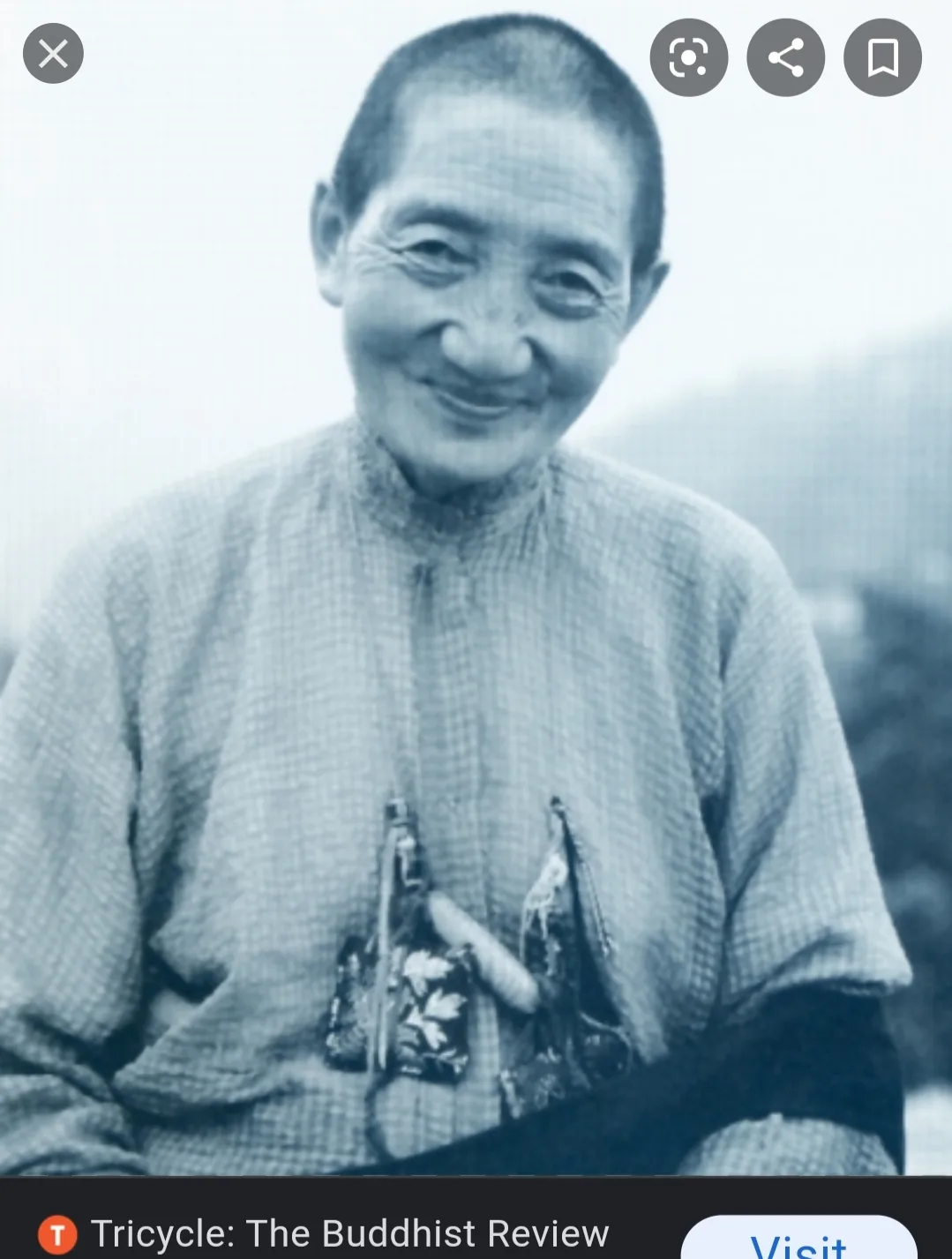
“When I die, just my story will be left.”
“Life is impermanent like lightning in the sky, like dewdrops on the grass. Our loved ones and our wealth last only a fleeting moment. The only changeless truths are the teachings of Buddha.”
1179: Ani Pachen
Tibetan Freedom Fighter and Buddhist Warrior Nun
Born: 1933, Gonjo, Kham, Tibet
Died: 2 February 2002, Dharmsala, India
Original Name: Pachen Dolma
Pachen’s name roughly translates to "Nun Big Courage". Like many Tibetan people of her generation, Pachen never knew the exact date of her birth, only the year. Her father was a local chieftain, and she was his only child. Pachen was raised in a loving family surrounded by llamas. She also learned to ride horses and shoot. As a teen, Pachen would compete in horseraces against other men.
When Pachen was seventeen, she overheard plans to arrange her hand in marriage to another local chieftain. Not wanting that future for herself, Pachen ran away and became a Buddhist nun in a local monastery. After her family decided against the marriage, Pachen returned home and divided her time between learning how to be a chieftain from her father and continuing her religious studies.
The Chinese invaded Tibet in 1950, and Pachen began to sit in on war meetings with her father and other Tibetan leaders. In 1958, Pachen’s father decided to fight back against the invaders with several other clans. Sadly, he passed away soon after. Buddhists are supposed to be pacifists, but Pachen decided to go to war to protect her people and her religion from the Chinese.
When the Chinese invaded Tibet, rumors began to swirl of children being shipped off to be re-educated in government run schools. Pacifist Buddhists were being forced to kill animals, and people deemed to be dissidents were being sent to labor camps. Thousands of innocent Tibetan people were killed across the country in what China has deemed a “peaceful liberation” that freed the Tibetan people from “backward feudal serfdom.”* Unfortunately, these statements could not be further from the truth.
Pachen led a force of several hundred Tibetans on horseback against tank driving Chinese Communists. She was given the nickname of Tibet’s Joan of Arc for her actions. In 1960, Pachen was captured while trying to flee, on foot, over the Himalayas with several relatives.
She was imprisoned and tortured for twenty-one years by the Chinese Communist Party. During her imprisonment, Pachen was routinely beaten, spent years in leg irons, and was often hung by her wrists for a week. Because of Pachen’s Buddhist beliefs, she said she “felt terrible” for the men imprisoning her, because their anger and actions were a result of karma from their past lives.
Pachen’s imprisonment was so awful it is hard to describe in words. At times she was so hungry she would rejoice when she discovered a worm in the dirt that she could eat. She was left in a hole in the ground for a year at a time, wallowing in her own feces. During her imprisonment, Pachen stated she prostrated herself 100,000 times in a single nine-month period.
In January 1981, Pachen was finally released from prison. She immediately joined local demonstrations against the Chinese Community Party. Seven years later, Pachen learned she was at risk for being re-arrested, and so she fled across the border to Nepal, and eventually settled in Dharmsala, where she joined other Buddhist supporters of the Dalai Lama. It was there that Pachen would fulfill a lifelong dream of meeting the Dalai Lama himself. By that time, all of Pachen’s other relatives had passed away, and she herself would leave no survivors either when she passed.
Pachen spent the rest of her life traveling the world advocating for the Buddhist cause. Her life story was eventually published in the form of a book: Sorrow Mountain: The Journey of a Tibetan Warrior Nun.
*As of 2023, China still controls the region of Tibet, and sadly, Tibet is internationally recognized as part of China as well. In March of 2023, several exiled leaders from Tibet addressed the United States' Congress for the first time. Among the various crimes the Tibetan officials have accused the Chinese Communist Party of include, “accusing Beijing of separating families in the Himalayan region, banning their language, and engaging in non-consensual DNA collection,” (quote from Al Jazeera, article linked below). The leader of the exiled Tibetan government (Penpa Tsering) went so far as to say the Tibetan language, religion, and culture are dying a “Slow Death.” As he noted in the same talk, Tsering brought up the fact that very few people in the west talk about Tibet and their plight anymore.
Let’s be honest, beside Phoebe’s friend who will, “Shower when Tibet is Free!” in Friends, when was the last time you heard anything about Tibet? Even though the international community has decided Tibet belongs to China, I refuse to do so on my website. Just like with Taiwan, Tibet should be recognized as free from the Chinese Community Party.
To learn more about Tibet and the 100,000 Tibetan people living in exile around the world, you can read that same Al Jazeera article I mentioned above, as well as more information from the "Free Tibet" organization, which I have also linked below.
Another damning quote from the Al Jazeera article that deserves mention:
“Republican Representative Chris Smith, who chairs the commission, said there was a global focus on Taiwan, Hong Kong and Xinjiang, but “we cannot take our eyes off the ongoing genocide being committed against Tibetan people”.”
Badges Earned:
Rejected Princess
Sources:
https://www.nytimes.com/2002/02/18/world/ani-pachen-warrior-nun-in-tibet-jail-21-years-dies.html
https://www.rejectedprincesses.com/princesses/ani-pachen
https://tricycle.org/magazine/ani-pachen-dolma-1933-2002/
https://freetibet.org/freedom-for-tibet/occupation-of-tibet/chinas-lies/
